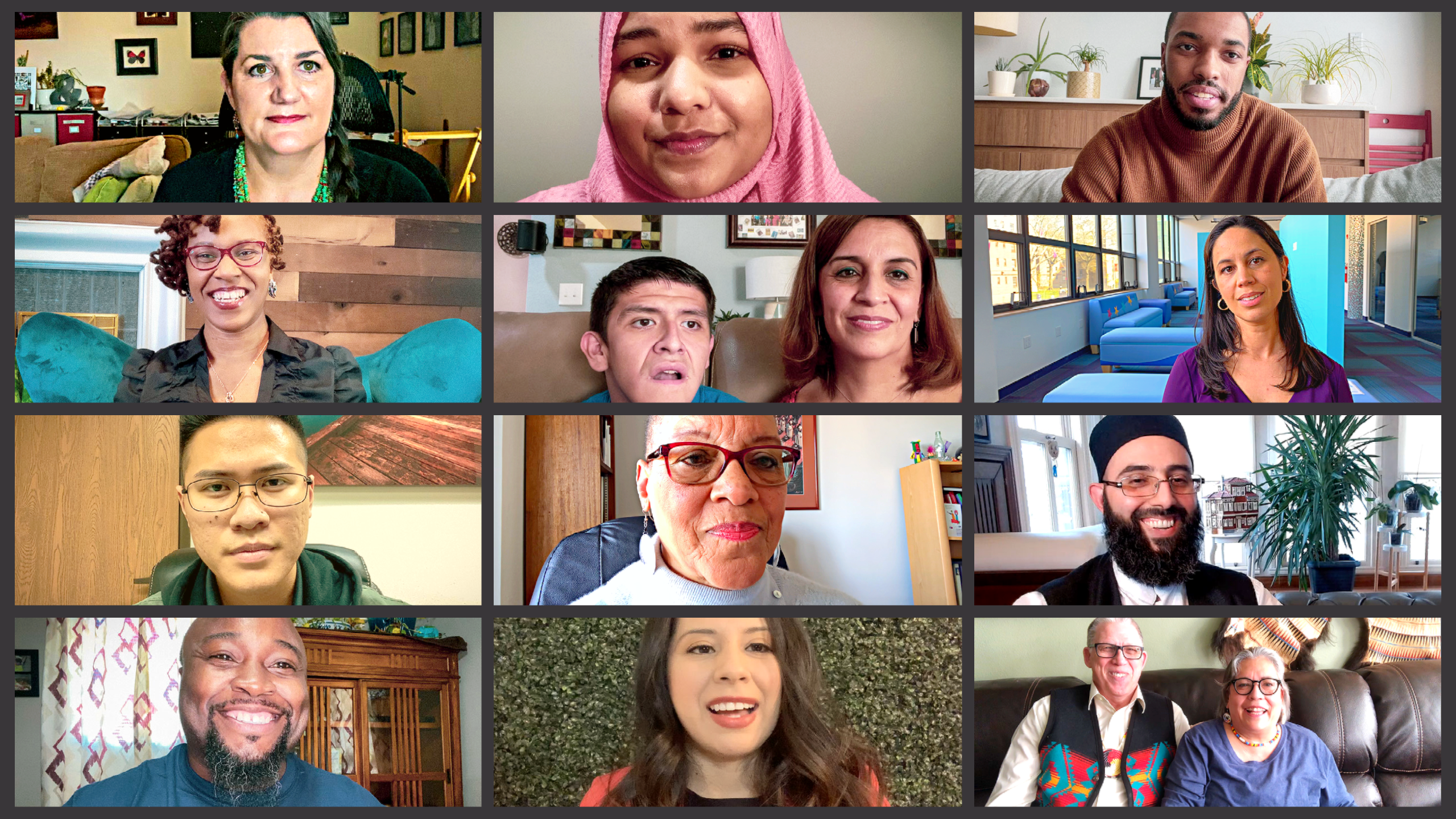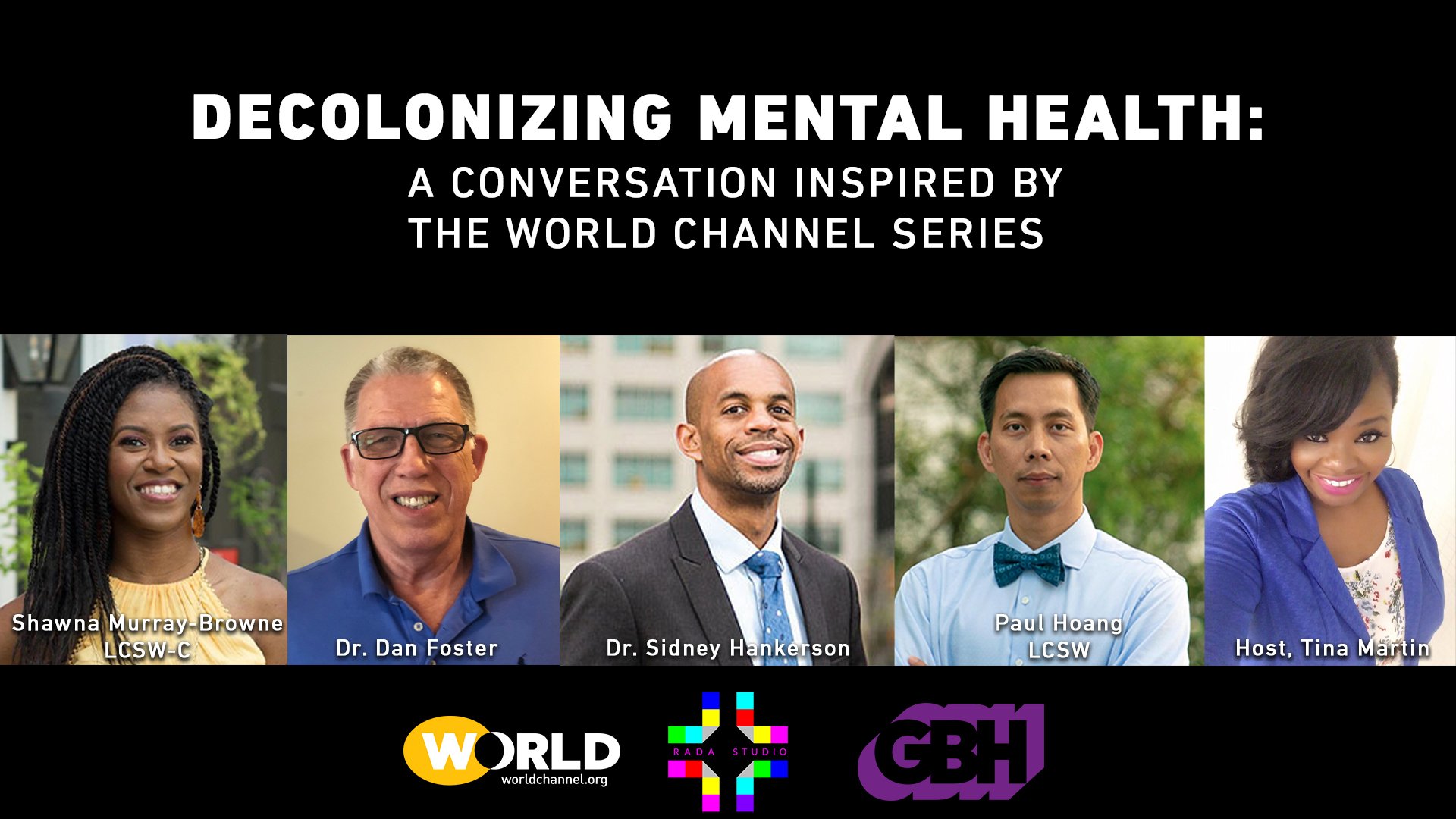Redefining & Breaking a Whitewashed Industry
Our exclusive DECOLONIZING MENTAL HEALTH series dismantles the racism that underscores the mental healthcare industry. By focusing its gaze on the transformative work of therapists and individuals of color, patients and practitioners call for a redressal of the ways in which we define psychiatric illness and mental health. In the series, we take a look beyond the echo chambers of mental healthcare. We talk to mental health practitioners of color, patients of color, and allies who are looking to break the white supremacy within the mental healthcare industrial complex. Patients and practitioners share their stories of seeking help within a system of disparity and tell us how, slowly but surely, things are changing.
The need to decenter the conversation around mental health from whiteness to the transformative work therapists and individuals of color are bringing to the field has never been more dire. Mental health practitioners like Shawna Murray-Browne, LCSW-C are cultivating spaces for communities of color to embrace the cultures of care and healing that have been taken away from them by the matrices of capitalism and racism. Formerly incarcerated people such as Lloyd Hale are using their stories of recovery to inspire other people to seek mental healthcare and embrace recovery. Clinical psychologist Dr. Igda Martinez of The Floating Hospital is working towards creating a mental healthcare complex that travels to meet people in need of intervention, in shelters, on the streets, and in temporary living situations.
The spectre of racism, however, continues to haunt psychiatry and prevents it from being equitable and accessible. Dr. Benjamin Rush was an 18th-century doctor, often regarded as the “father of American psychiatry,” and wrote the first systematic textbook on mental diseases in America, Medical Inquiries and Observations upon Diseases of the Mind, published in 1812.
Dr. Rush believed that Black skin was caused by a mild form of leprosy; he called the condition “negritude.” Until as recently as 2015, the American Psychiatric Association’s logo featured Dr. Rush.
Like most other healthcare industrial complexes, the mental health field continues to operate around a centre that is defined by its whiteness of theory and practice. Gyri and sulci are the folds and indentations in our brain, and, perhaps unsurprisingly, each of those folds is named after a white man. Like the human brain, every fold and crevice of the mental health industry has been defined by an unchecked whiteness. It is a colonization that has rarely ever been questioned. Within America’s flawed healthcare system, there is a need to decolonize psychiatric care and the methods in with which we measure the successes and failures of the mental healthcare system.
As the April 2021 New York Times article "Psychiatry Confronts Its Racist Past, and Tries to Make Amends" notes, “only 10.4 percent of [mental health] practitioners come from historically underrepresented minority groups, who now make up nearly 33 percent of the U.S. population.”
This not only keeps underrepresented minority groups from empowering themselves but also refuses to acknowledge the cultural and scientific contributions they’ve made to the mental health practice. Additionally, psychiatric care continues to be the most expensive healthcare service.
When the Hiawatha Asylum for Insane Indians was established in 1889, it was the first federal mental hospital for an ethnic group. After the U.S. Congress decreed Native American indigenous rituals and practices to be criminal, they imposed a Euro-centric, white-centred idea of “madness” on a population that had, for centuries, complex and ancient systems of healing and recovery in place. This is a classic example of colonial violence, the effects of which are still prevalent among Native communities. Today, the average life expectancy of Native Americans is four years shorter than all other races in the country. Suicide rates among the communities are increasing at a tragic rate.
“In any given era, those who minister to the mentally ill – doctors or shamans or priests – inadvertently help to select which symptoms will be recognized as legitimate. Because the troubled mind has been influenced by healers of diverse religious and scientific persuasions, the forms of madness from one place and time often look remarkably different from the forms of madness in another,” writes Ethan Watters in a 2010 New York Times essay titled "The Americanization of Mental Illness."
Historically, every culture defines health and sickness within a context framed by their own systems of life and knowledge. When a colonizer decides to usurp that existing vocabulary and impose a unitary meaning of health and sickness, defined by their own culture, there is an epistemological violence that occurs. Naturally, a skewed idea of sickness leads to a skewed perspective of care and healing.
As a result, there emerges a system that is absolutely blind to the specificities of trauma in people living with mental health conditions. When speaking of their struggles with mental illness, people of color often speak of how, even before they seek treatment, they confront social taboo. On overcoming that taboo, they take on the additional emotional labor of acquainting their mental health practitioners to their specific cultural realities. This is why the system is literally begging for the services of people with similar lived experiences who can practice psychiatry and psychology with a guiding sense of empathy.
A Center for American Progress report, published in 2017, notes that The American Psychological Association estimates that 1 in 7 women experience postpartum depression. The true statistic is still unknown, since most women do not recognize the symptoms associated with the condition. It adds that “Black and Hispanic women who experience maternal depression have higher rates of adversities compared with their white counterparts.” The failure to detect these adversities is also greater. The lack of minority representation within the psychiatric field impacts all underrepresented populations and, as an extension, majority populations as well. An equitable healthcare system is equitable for everyone.
The values and the gaze of the treating entity play a major role in the diagnosis of mental health in marginalized communities. There is a need to recognize how the practice of psychiatry reflects and proliferates the racist assumptions the larger society operates with and applies to social norms. For example, the unavailability of psychiatric services in non-English languages often leads to the misperception of mental health conditions in large sections of the Asian American and Latinx population. The white practitioners’ failure to acknowledge Black expressions of emotion and to detect Black distress has led to an under-diagnosis of epidemic-level depression in Black men.
“By definition, schizophrenia is a diagnosis of exclusion: Clinicians must rule out other potential causes of symptoms, including mood disorders, before the diagnosis of schizophrenia is given,” said Rutgers Robert Wood Johnson Medical School’s Michael Gara, a professor of psychiatry. This is just one example of how a racist healthcare system continues to worsen an already epidemic-level mental health condition.

The inherent racism of the practice has led to the demonizing of Black vulnerability to such a large extent that, Gara notes, “there has been a tendency for clinicians to overemphasize the relevance of psychotic symptoms and overlook symptoms of major depression in African Americans compared with other racial or ethnic groups.” As a result, schizophrenia is now considered to be, as the New York Times article “Psychiatry Confronts Its Racist Past, and Tries to Make Amends” puts it, “the Black man’s disorder of aggression and agitation.”
In October 2020, a 27-year-old Black man, Walter Wallace Jr., had come home from the West Philadelphia Consortium, a mental health crisis response center. When his mental health began to worsen, the police paid two visits to his home following complaints of domestic disturbance. On their third visit, as Wallace Jr. walked towards them with a knife, they shot him 14 times. His death is not just symptomatic of the unfair amount of power bestowed upon the police force in the nation, but it also points towards society’s failure to address a community need and a lack of awareness when it comes to dealing with mental health patients. If West Philadelphia Consortium’s mobile crisis team was dispatched following the 911 call instead of the police, Wallace Jr. could still be with us. Addressing the disparities within the healthcare industry complex doesn’t just benefit the communities that suffer these disparities, but it creates an environment of empathy and more holistic treatment for all future patients.
With so many questions surrounding equitable and just treatment options, Dr. Vivian H. Jackson, from the National Center for Cultural Competence, Georgetown University Center for Child and Human Development, may have a solution. She has set the standard for understanding and correcting mental healthcare disparities. In order to eliminate mental health disparities, she formulated the six As of assessing the inclusivity of a mental healthcare service.
(a) Availability of services: Does it exist?
(b) Awareness of services: Does the community know services exist?
(c) Appropriateness of services: Is the intervention offered congruent with cultural beliefs, values, and worldview?
(d) Accessibility of services: How convenient is it to obtain and use the services?
(e) Affordability of services: Can the consumer afford the service?
(f) Acceptability of services: Is the intervention offered congruent with the tenets of the practice?
These six As don’t just help us articulate the gaps within mental health care, but within society itself. It helps us reimagine society and consider what the world looks like when parents of people navigating mental health issues don’t need to call on the police when their loved ones struggle with their symptoms.
As we listen to Black, Indigenous, and people of color despairing at the way the system operates, we must also celebrate the hope they bring to the field when they take the first steps towards recovery. As we question the ideas of “normal,” “successful,” and “failure,” it is important to draw upon the definitions of joy and hope laid down by each culture when they brave social taboos, opposition from family, structural racism, isolation, and more.
Bedatri D. Choudhury is a New York-based culture journalist and documentary film professional.
Asking for help does not represent weakness; it displays courage. If you or a loved one is looking for support, find available resources here.
DECOLONIZING MENTAL HEALTH: A CONVERSATION
Moderated by Tina Martin, host of LOCAL, USA and Associate Professor of Journalism at Boston University, a panel of mental health industry experts and advocates – Dr. Sidney Hankerson, Dr. Dan Foster, Paul Hoang, LCSW and Shawna Murray-Browne, LCSW-C – came together to discuss the unique mental health care challenges faced by underrepresented communities and those that have been historically marginalized. Read a recap of the event and watch the conversation in full.

WORLD Channel’s and Rada Studio's DECOLONIZING MENTAL HEALTH, part of MYSTERIES OF MENTAL ILLNESS from PBS, examines the obstacles that systemic inequality imparts on the mental health industry, preventing BIPOC and other marginalized communities from receiving appropriate treatment. All episodes will be streaming online, on YouTube and on the PBS app.



